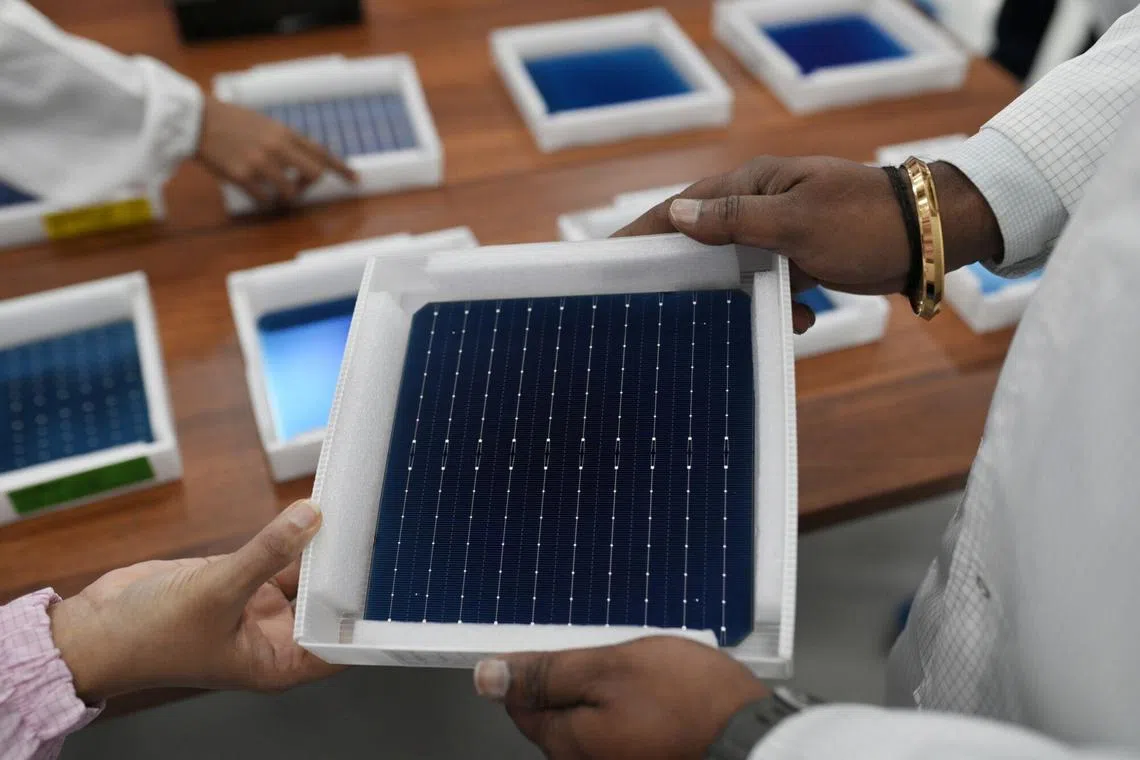US finalises tariff hikes on more China green tech imports
Sign up now: Get ST's newsletters delivered to your inbox

Tariffs for solar wafers (above) and polysilicon will double in January to 50 per cent, while those on certain tungsten products will rise from zero to 25 per cent.
PHOTO: BLOOMBERG
WASHINGTON - The US firmed up tariff hikes on Dec 11 on more Chinese imports, including crucial solar panel components, following recent efforts by China to guard its green energy sector.
The latest moves announced by the US Trade Representative’s (USTR) office cap a review of tariffs imposed during President-elect Donald Trump’s first administration.
Rates for solar wafers and polysilicon, used in solar cell manufacturing, are due to double in January to 50 per cent. Those on certain tungsten products will rise from zero to 25 per cent.
“The tariff increases announced today will further blunt the harmful policies and practices by the People’s Republic of China,” said US Trade Representative Katherine Tai in a statement.
The actions, she added, will complement domestic investments made under outgoing President Joe Biden’s administration to boost the US’ clean energy economy.
The White House announced in May steep tariff increases
The announcement on Dec 11 furthers earlier efforts. Hiking tariffs on three additional lines of tungsten products was seen as key to helping US industries including aerospace and defence, according to a USTR notice.
“Continued reliance on China for tungsten products leaves US supply chains vulnerable and puts US national security at risk,” it added.
It said Chinese imports have been undercutting US domestic production and higher levies will make domestic producers more competitive.
“While increasing tariffs may result in higher prices initially, the tariffs are necessary to allow domestic producers to compete against China’s massive excess capacity, defend recent investments and encourage more domestic manufacturing,” the USTR notice said.
Mr Biden has taken a targeted approach on tariff hikes of Chinese goods, although he did not roll back increases imposed during Trump’s first term either.
At the time, Trump engaged in an escalating tariff war with Beijing. His return to the White House in January could see temperatures rise again between the world’s two biggest economies, with him already threatening sweeping tariffs


